Hosted by Claire Musters
This month I’m reading…
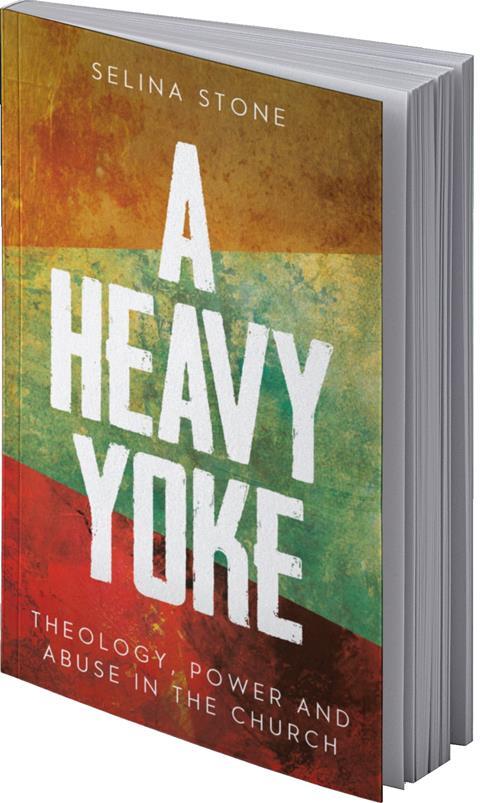
A Heavy Yoke: Theology, power and abuse in the Church By Selina Stone
(979-0334066699, SCM Press)
There have been several articles and books looking at the areas of spiritual abuse and unhealthy leadership recently; sadly, a necessity after the spate of well-known leaders finally being called out for abuse. These resources have quite rightly focused on the testimonies of survivors, but none have looked at the impact our theology has on our behaviour – until this book.
Selina is a theologian who was raised in a Black Pentecostal church, and her PhD was a study on bringing womanist ethics into dialogue with Pentecostal spirituality and theology. All of this, along with her own personal experience, feeds into her approach, which is a robust look at who holds power within our churches and how that can be misappropriated, even without people realising it. For example, the language of ‘servant leadership’ is one that she highlights as being problematic. She also looks at how the Christian call to humility can, depending on how it is appropriated, add to the marginalisation of certain groups.
Selina doesn’t shy away from naming some of those ‘big name’ spiritual abuse cases of recent years, looking at the preaching of Mike Pilavachi and the language of John Smythe and Jean Vanier in the light of the abuse that has been recorded.
This is an uncomfortable but important read.
You won’t agree with everything that is said – and that’s OK.
Do you have any thoughts on why ‘theology and power’ hasn’t been a focus of the books that have come out looking at spiritual abuse in recent years? And what compelled you to write your book?
I think this is a challenging topic because it requires us to ask difficult questions about ideas that many of us hold dear. That can create a level of fear of what to do if we find out that an idea we consider core to our faith is critiqued. Will our whole faith unravel if an element can be, or has been, manipulated and misused to harm people? I understand this, but as someone who has survived a major crisis of faith, I know that asking challenging questions of our theologies is crucial to our maturity as believers. I felt compelled as someone trained in theology, who has worked pastorally with people in different settings, and someone who has experienced harmful environments and individuals, to write a book that might help us do that difficult work.
Your first chapter looks to define power – and emphasises the true origin of power – why did you feel it was important not to rush into discussions of power dynamics, and could you give a brief definition here for our readers please?
I think as a theologian I wanted to begin with power as seen in relation to God and God’s ways with us to start us off. We can imagine power to be a negative thing because we are so used to misuses of power not only in some faith settings but in politics, business, families or in other places. But these are distortions of power, which do not have to be this way. I think starting off with a definition that begins with God helps us to see what could be, and what should be. This also helps us to see that power is not bad in and of itself. Power is necessary for life. We can think of power as starting with God hovering over the uncreated world as the Holy Spirit, and as the breath of God being breathed into Adam the first human. Power, as seen in this divine sense, is what makes things possible. This is often not what we experience, and this is what the rest of the book wrestles with.
You unpack what the word ‘almighty’ means, and go on to discuss how we can assume everything ‘successful’ must have come from God. How can we resist doing this, and how does our understanding of almighty help?
We can sometimes feel comforted by the idea of an almighty God who can do anything he chooses, preferably when it aligns with what we want or hope for. But there is a danger of us thinking that by extension if something is going well, especially numerically, then that means God is blessing it. In reality, something can go very well because of financial investment, a charismatic figure being in charge, good marketing and connection with the right people. These do not inherently have anything to do with God, but they do create success. By contrast, if something is not ‘successful’ we imagine God is not pleased, or is somehow disappointed. I think we need to pay more attention to the parables of the kingdom that use many analogies for small things like seeds, pearls and yeast, to describe how God’s reign functions. They should help us recognise the wisdom of the kingdom which seems like foolishness, like God becoming as small and fragile as a newborn baby.
There is often a line drawn between the world and the Church – with all things evil seemingly only coming from the world. Why do you think this is a dangerous view to hold?
I think it causes us to be overly cautious about whatever we label ‘unChristian’ and very naïve about whatever is called ‘Christian’. It means that we become self-righteous when there are some useful things to be gained from so called ‘secular’ contexts, people or norms. In contrast, we become so trusting of those within the Church that we fail to ask the necessary questions and do our due diligence. I think this can underpin cases where churches want to deal with abuses of power in-house – assuming they have superior wisdom – when in reality they are failing to fulfil even the most basic of safeguarding requirements. Safeguarding policies can be seen as a ‘worldly’ or ‘secular’ intrusion.
You say: “The potential for atonement theories and theologies of suffering to contribute to Christian abuse has long been explored in Black, feminist and womanist theologies” – could you unpack this statement a little here please?
This is a big idea that can be somewhat controversial because it gets to the core of the narratives many of us believe or preach, about what salvation is and how it can be made possible. I am not suggesting here that we shouldn’t talk about the cross or see the cross as central in some way to our faith, but I am saying we need to think a bit more, and speak more directly about what that does and does not mean. Womanists and feminists have invited us to consider how the idea that a wrathful God demands the suffering and sacrifice of an innocent person to save humanity, can, even if inadvertently, open up the door for all kinds of abuse. Is there a risk that we may more easily accept the harm done to us by others and even think God has chosen us for this suffering, because of this theology? I think this is a strong possibility.
You suggest discernment as a spiritual practice is so crucial in combatting spiritual abuse – could you explain how and why you think people (including leaders) aren’t taught it?
This was the most challenging chapter, because discernment is so difficult to define and explore! I think that is crucially why we might not talk about or teach about it much. It feels a little slippery, maybe risky, to empower people to hear God, listen to themselves, identify the spiritual wisdom in what others may say, and then have the faith to act. Some of us might do this instinctively, but sometimes it can be a challenge and we get overwhelmed by the conflicting ideas even in our own hearts. I think the spiritual wisdom of those who have gone ahead of us is essential to enabling us to receive and nurture this gift in ourselves and others. Many Christian mystics and spiritual teachers have thought and written about this. If you are fortunate, you may have been taught this in your church or family, as I was.
Selina Stone on: The books that have changed my life
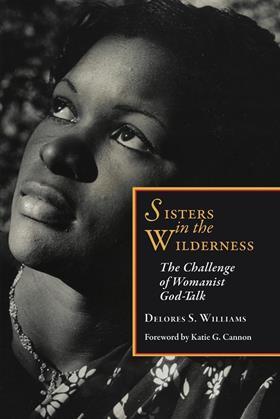
Sisters in the Wilderness by Delores Williams
This was the first time I read a theology book that took Black women’s experiences and theological questions seriously, and taught me how expansive theology as a subject could be.
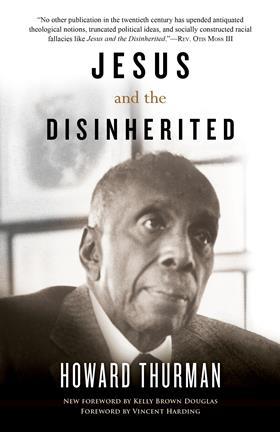
Jesus and the Disinheritedby Howard Thurman
This remains one of the most moving and accessible theology books I have ever read. It allowed me to see the Jesus I had believed in my whole life, in such a richer and more powerful way than I had before.
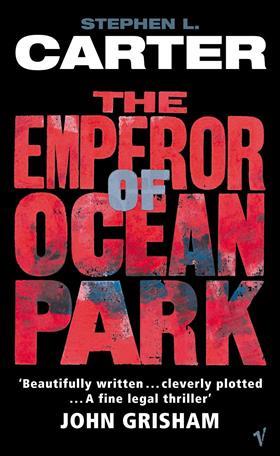
The Emperor of Ocean Park by Stephen L Carter
This is a novel revolving around the death of a respected judge, which sends his family reeling, set in an upper middle class African American community. The author is a law professor, and it taught me not to put limits on myself in what I might create and share with the world.
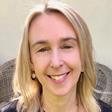












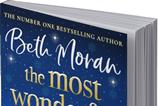
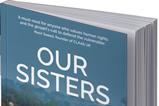


















No comments yet